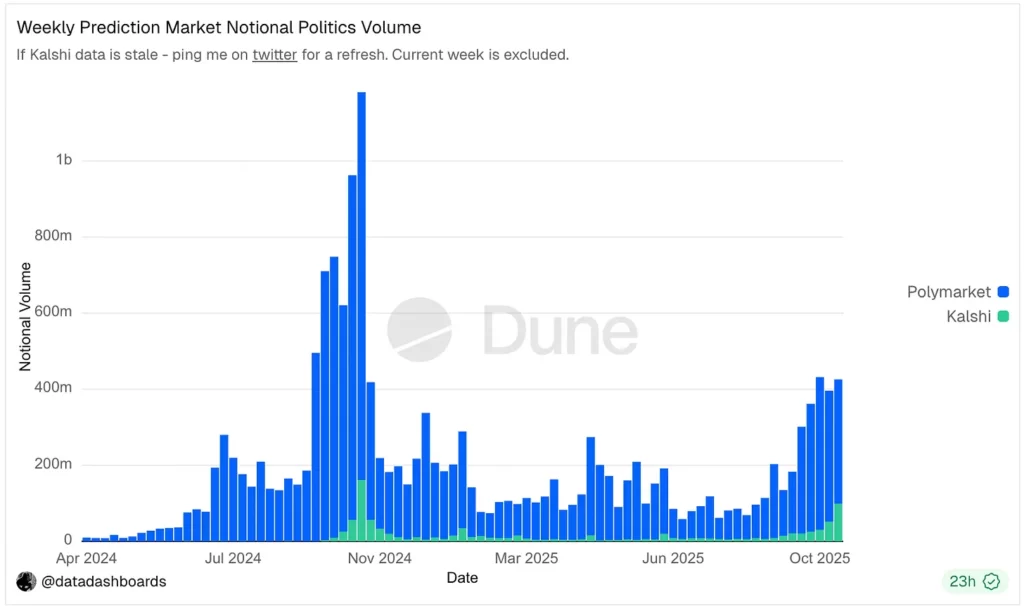The Volokh Conspiracy
Mostly law professors | Sometimes contrarian | Often libertarian | Always independent
"Inside the Markets Aggregating Political Reality"
Stanford Political Science Prof. Andy Hall, a colleague of mine at Hoover, has this very interesting post at his new Free Systems Substack. An excerpt:
I've studied political prediction markets for years, and their early history is full of clever designs and unrealized promise. But what's happening now is fundamentally different. The scale, the liquidity, and the attention these markets are attracting represent a break from efforts of the past.
My broader project is to understand how we preserve liberty in an increasingly algorithmic world. Prediction markets are a fascinating case where individuals, freely pursuing their own incentives and acting on their own information, can generate a public good for the digital era: a clearer shared picture of a highly complex political environment. At the same time, they can also create strange feedback loops that require careful governance. So they're well worth studying.
To learn more, I decided to see them up close. Two weeks ago, I flew to New York City for election night and joined a group of academics, technologists, and prediction-market traders to run a real-time experiment betting on actual elections.
Over the course of the night, I witnessed a technology that has incredible potential to make us smarter and more informed about politics and the world—and which raises profound questions about what politics looks like in a world of live probability feeds where truth is often contested and frictionless information overwhelms our narrow attention spans….
Three questions that will make or break prediction markets for politics
Question 1: When markets become narrative, how do we think about manipulation and unintended consequences? …
Question 2: When we have markets for everything, how do we find the right ones at the right time and make sure they resolve correctly? …
Question 3: When markets are a source of truth, how do we define truth for the most contentious issues? …
Back home after my experiment in New York, I've developed a new habit. When I watch NFL games, I have the Kalshi and Polymarket prices open on the computer next to me. When I see them spike, I know to pay attention to the game in anticipation of a big play, because the markets move several seconds before my TV feed does. Traders are literally outrunning my "live" TV. The growth and speed of these prediction markets is truly extraordinary.
Real-time prices from political prediction markets can cut through noise, quantify uncertainty, and help us see the world more clearly, if they are designed with care. That means solving at least three linked governance challenges that I've explored here: manipulation, discovery, and resolution. There are good reasons to be optimistic about all of them, but they all require careful thought and learning from mistakes as we go. I'll be sharing more in-depth ideas on each in the coming months.
Read the whole thing; if you find it interesting, you can subscribe to the Substack here.



Show Comments (3)